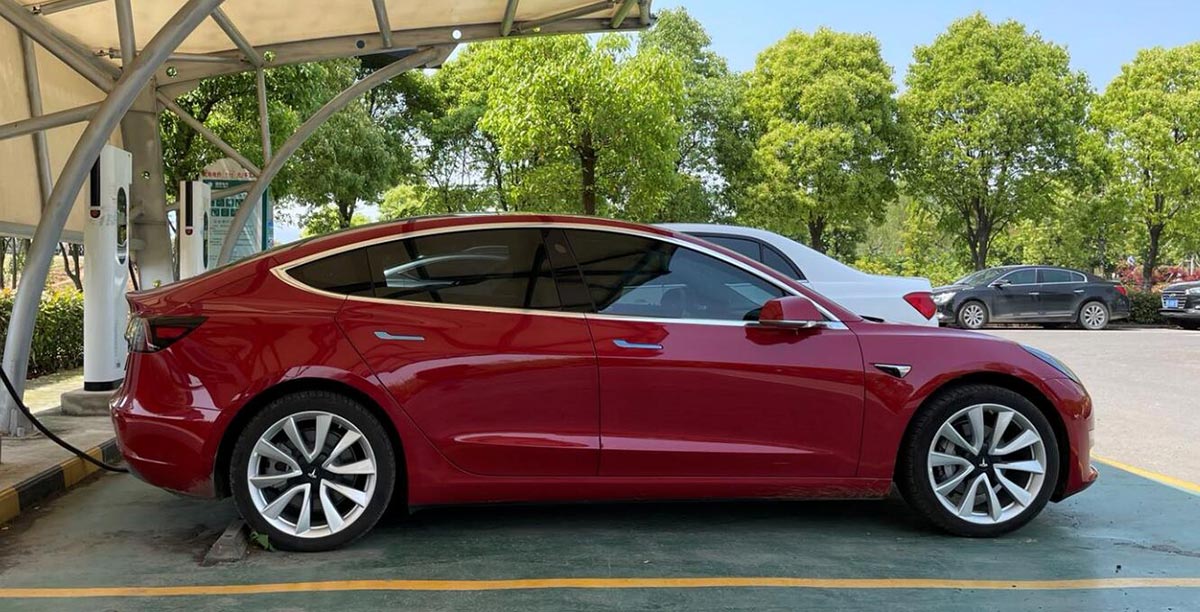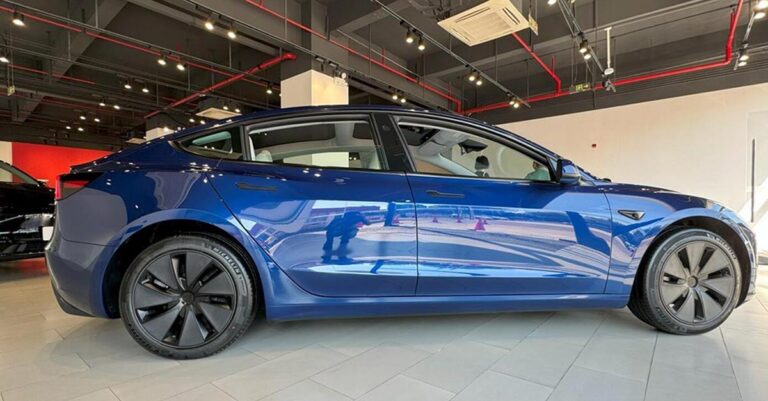The Chinese government will likely support Tesla's local testing of robotaxi, but did not immediately approve its widespread use of FSD features, according to local media.

(Image credit: CnEVPost)
The Chinese government will likely support Tesla's local testing of robotaxi, but has not yet completely approved full rollout of its FSD (Full Self-Driving) driver assistance software, according to a report today in the Chinese version of China Daily.
A recent unannounced visit to China by Tesla CEO Elon Musk has sparked discussion and speculation about FSD's entry into the country, the story noted.
Tesla has suggested that it wants to launch robotaxi in China, China Daily said, citing multiple sources.
The bill involving TikTok recently passed by the US Congress reflects the rise of trade protectionism, the report said, adding that against this backdrop, China's support for Tesla to test its latest technology locally is an example of the integration of foreign investment with the Chinese market.
This once again demonstrates the Chinese government's positive stance of expanding openness, with China welcoming foreign companies to roll out advanced smart-driving technologies in the country, the report said.
Musk briefly visited China on April 28, and the Tesla CEO hinted on April 20 on the X platform, which he owns, that FSD's entry into China could happen soon.
A Bloomberg report on April 29 said Musk's China visit was aimed at seeking approval for driver-assistance software to help stem a revenue slide.
Tesla cleared a key hurdle to launching advanced assisted driving features in China by partnering with Baidu on mapping and navigation features, Bloomberg's report said.
Tesla will then be able to deploy its self-driving service based on lane-level navigation and maps provided by Baidu, people familiar with the matter said, according to the report.
During Musk's visit to China, he proposed testing the FSD feature in Tesla vehicles locally, deploying them as "taxis," China Daily said in a separate English-language report today, adding that sources indicated that the Chinese government may have offered partial support for this plan.
Chinese officials told Musk that the country would welcome Tesla to conduct some robotaxi tests in China and hopes it to "set a good example," the sources said, but authorities did not immediately approve its widespread use of FSD functions, according to the English-language report.
Tesla still needs approval to collect and transmit the data needed to train Tesla vehicles on driver-assistance features before the full rollout of its FSD functions, the report noted.
This issue wasn't discussed in detail during Musk's visit to China, people familiar with the matter said, according to the English-language report in China Daily.
On April 20, Baidu held a press conference announcing partnerships with Tesla and a number of other companies to launch advanced lane-level navigation.
Some media reports said Tesla inked a deal with Baidu to clear another regulatory hurdle for its autonomous driving services, China Daily noted, adding that a source close to Baidu said he had not seen "any new deal related to FSD functions" between the two.
The source said he believed that the latest cooperation only means that the accuracy of Baidu's map provided to Tesla has been improved to some extent, and that it has no direct relations with its FSD function, according to China Daily.
"Tesla doesn't rely on mapping to offer autonomous driving and hasn't got a license from Baidu to use its mapping license," he said.
On the night of Musk's visit to China, the China Association of Automobile Manufacturers (CAAM) said in a statement that Model 3 and Model Y vehicles produced at Tesla's Shanghai factory passed data safety requirements.
This means that Tesla's Giga Shanghai models have passed China's authoritative national vehicle data security standards and requirements, facilitating the full lifting of restrictions on the access and parking of Tesla vehicles in some areas, such as government parks, airports, and highways, the Southern Metropolis Daily quoted an unnamed observer as saying in a report at the time.
This was also seen as the latest sign of Tesla's FSD's imminent entry into China, and sparked widespread discussion on social media.
Tesla later responded that there is currently no timeline for the FSD to enter China, according to local media outlet The Beijing News.

